Revisiting a Crappy Issue on World Toilet Day
Back in 2008, when the United Nations estimated that 2.6 billion people had no safe place to excrete, I wrote a couple of Dot Earth posts about the hazards of open defecation. One had this artwork (I went to this demonstration at Columbus Circle):
And the post opened with this anecdote from a long-ago visit to French Polynesia:
In 1978, fresh out of college, I traveled to the South Pacific to study man’s relationship to the sea in isolated island communities. I settled in with a family in a tiny village at the end of a dirt road on Raiatea, in French Polynesia.
On my first night with them, without thinking about it, I used the western-style toilet in their thatched house. That was a mistake. They had such a toilet only because the house had been built by an American visitor decades earlier (foreigners couldn’t own property). Only afterward did I realize the toilet wasn’t hooked up to any plumbing. Embarrassment doesn’t begin to describe my feelings. As I would figure out a bit later, they did what needed to be done on a nearby beach.
Almost everywhere, sanitation is not an easy subject. But the lack of it kills far more people each year than warfare does.
Have you had such misadventures?
I described the profound health harms from the lack of sanitary facilities, including in schools (a particular hindrance to middle school girls). I uploaded an amusing public service video aimed at kids:
Today happens to be World Toilet Day, and I can’t help noting that while there has been progress, widespread open defecation is still a big part of humanity’s sanitation challenge. Here are some United Nations stats:
The Global Sanitation Crisis
• 3.4 billion people still live without safely managed sanitation services — that’s nearly half the world’s population. (WHO/UNICEF, 2025)
• 354 million people still practise open defecation, increasing the risk of disease and harm, especially for women and girls. (WHO/UNICEF, 2025)
• Only 58% of the global population use a safely managed sanitation service — which means an improved toilet that is not shared, and has excreta safely disposed of in situ or transported and treated offsite. (WHO/UNICEF, 2025)
Sanitation and Health
• 22% of schools worldwide have no access to basic sanitation services, affecting learning, dignity, and attendance, especially for girls. (WHO/UNICEF, 2024)
• Inadequate sanitation and hygiene are linked to the transmission of diseases such as cholera, diarrhoea, dysentery, hepatitis A, and typhoid. (WHO, 2023) • Unsafe water, sanitation and hygiene are responsible for the deaths of around 1,000 children under five every day. (WHO, 2023)
In India, Unicef and partners launched a social media and video campaign a decade ago pressing the case for taking the “poo to the loo” (hashtag #poo2loo).
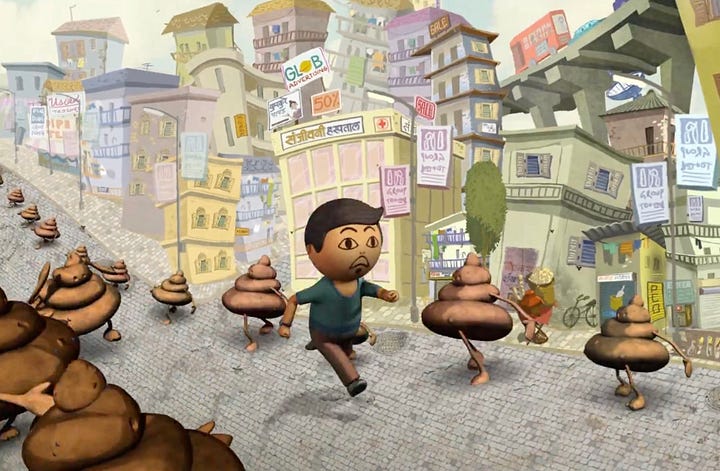
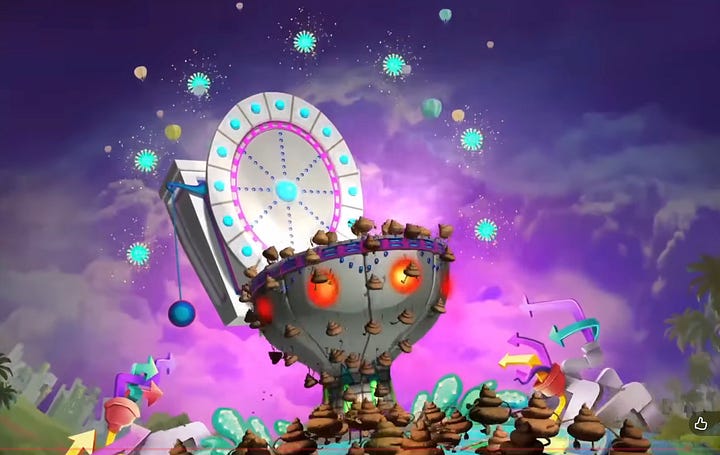
They claim it was successful:
To explore ways to make existing toilets better, check out
‘s World Toilet Day roundup of his many articles on the subject:I almost missed it! November 19 is the day for the official United Nations acknowledgment of the need for toilets that are:
Accessible to all.
Resilient to floods, droughts and other climate shocks.
Minimize greenhouse gas emissions.
Supported by strong systems and sustained investment.
I would have posted something new about toilets today, but instead will round up some recent posts on the subject, starting with how stupid it is that we use drinking water to flush away our waste.
I know, I am spending a lot of time in the bathroom, having written about bathtubs, showers, sinks, bidets, and why toilets should be in their own room. This is, I promise, the last the second last, before I end with the bathroom of the future….



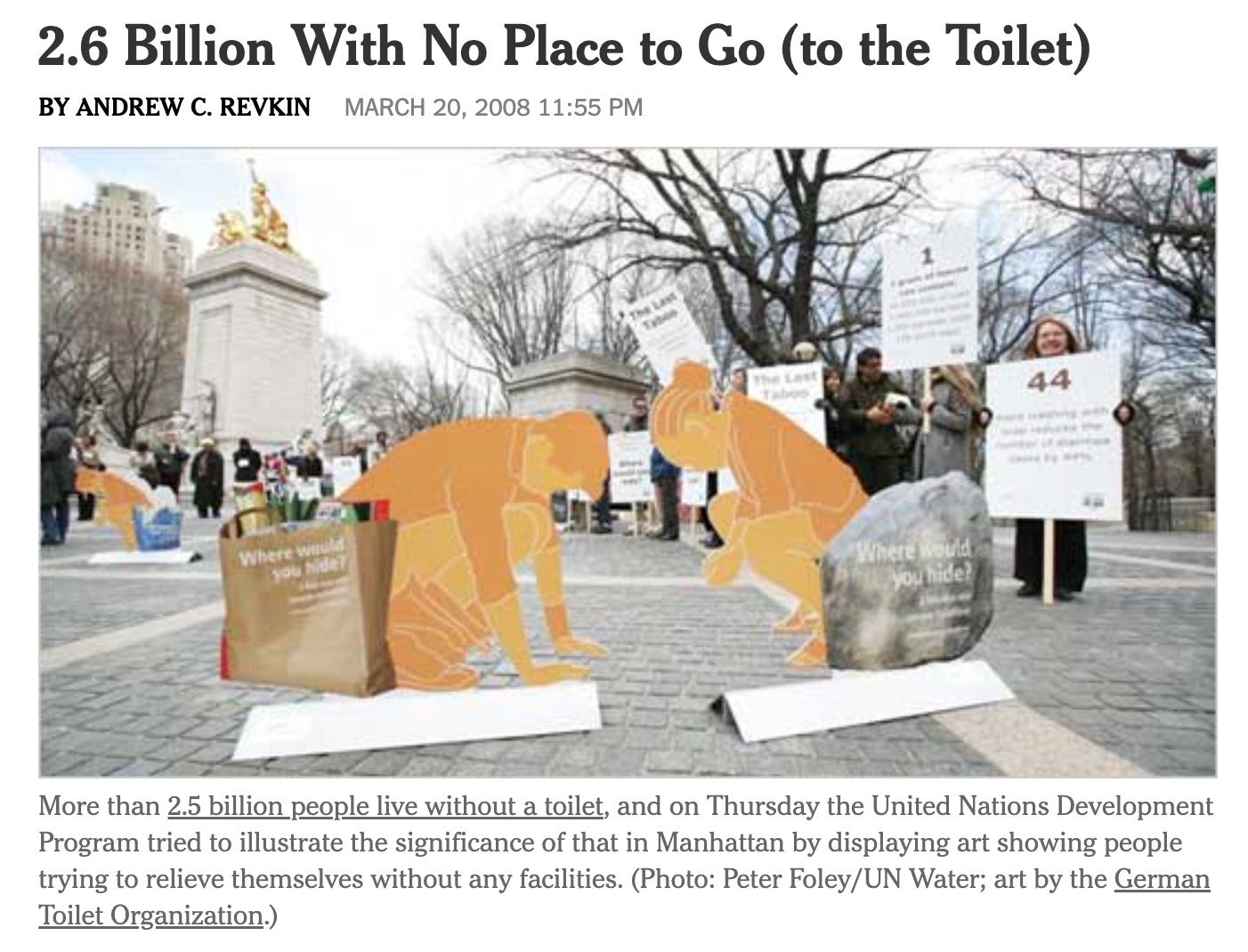
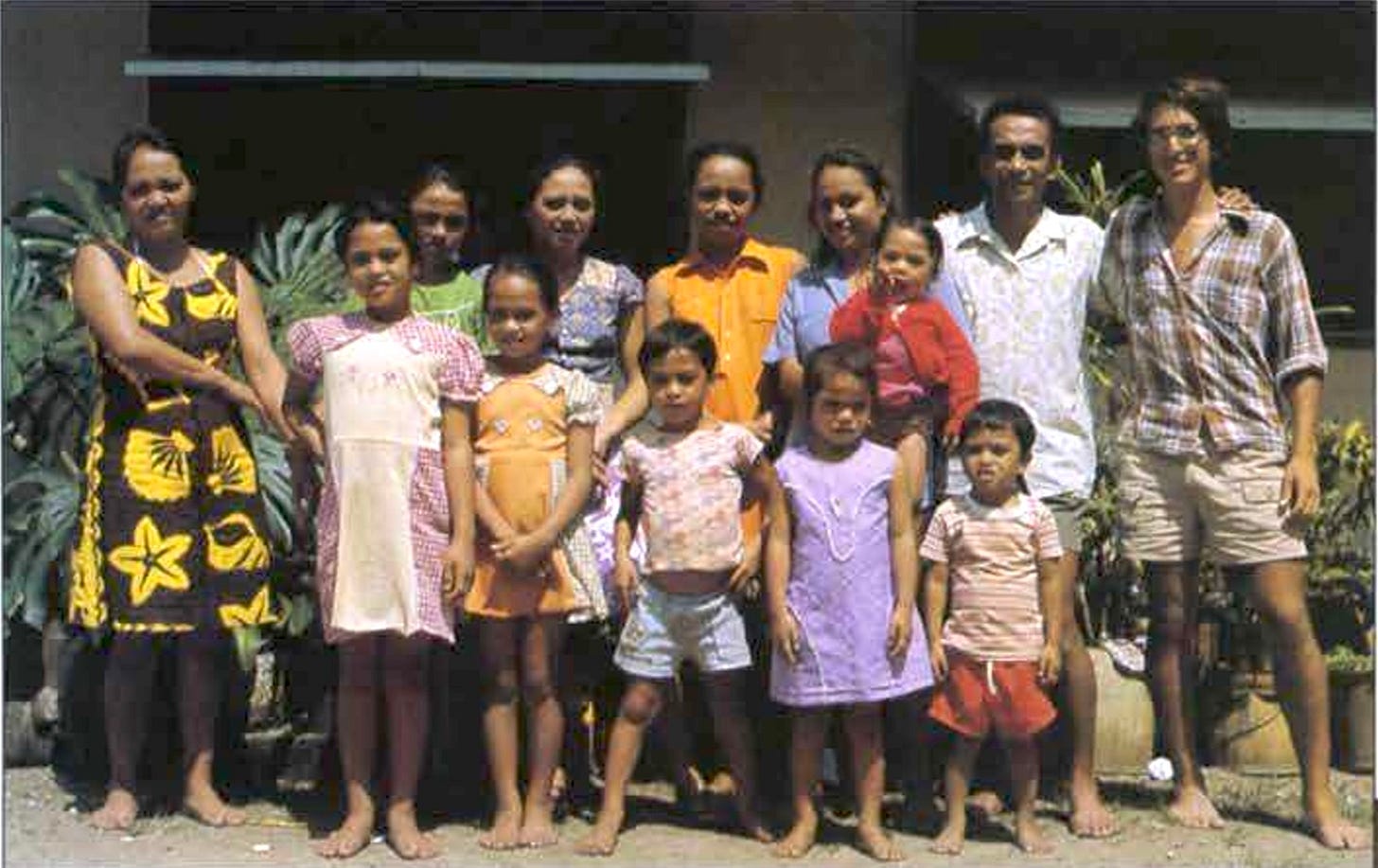
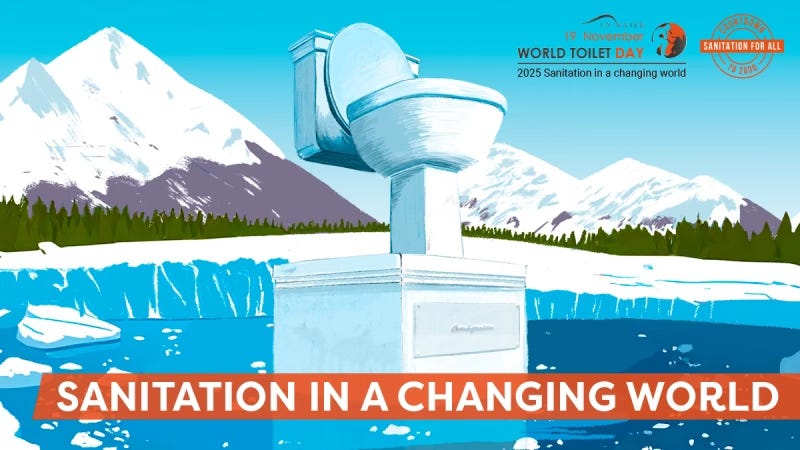

Years ago I went to Ecuador with the Rainforest Alliance to visit eco-resorts operated by the Yasuni. They all had banks of toilets built by the government, none of which were connected to water and which just dumped out into the forest. The government built concrete block bathrooms with toilets everywhere, and none of them were connected to water and sewer. That was evidently going to come later!